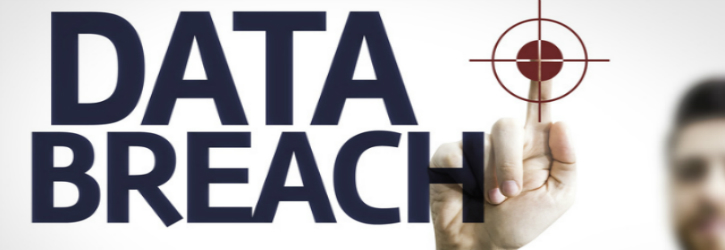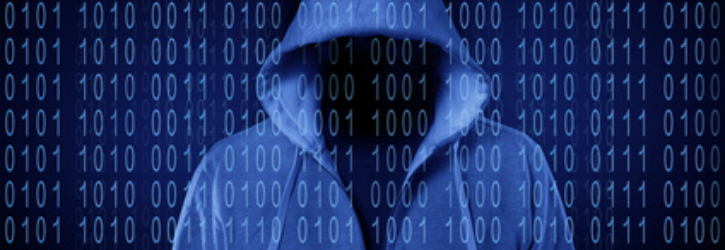
Welcome To The Data Leak Lawyers Blog
We focus on the latest news surrounding data breaches, leaks and hacks plus daily internet security articles.

We focus on the latest news surrounding data breaches, leaks and hacks plus daily internet security articles.

An investigation carried out by the UK’s privacy watchdog has led to a Doctors Surgery in Hertfordshire being fined £40,000 for giving out personal medical information contrary to data laws.
The surgery, Regal Chambers, gave information to a woman’s estranged partner despite the practice being warned this might happen.
The information was formally requested by the ex-partner regarding the son he has with the woman. The data breach was discovered when the ex-partner filed medical reports in court against her.
read more

We trust the authorities with our personal information in some of our most distressing times which is why it’s important that the Police must protect the data they have on us. But is our data always safe in the hands of the authorities?
As Big Brother Watch found out in a report, the security of our data with the police might be something we should all perhaps be a bit more concerned about…
read more

We covered this yesterday – the story about a nurse’s stolen handbag possibly causing a significant data breach, which has been a real cause for concern for those affected.
On 9th July, in east Chesterton, an out of hours nurse who worked for Cambridgeshire and Peterborough NHS Foundation Trust was visiting a patient when the out of hours vehicle she was using was broken into. Her handbag was stolen from the car, which contained a diary.
The diary contained information about 200 patients whom the nurse had been visiting for the last six months. The information contained in the diary included patient name, their address, and, for some, access information to their home.
The result of this is a potentially huge data breach for those whose details have been stolen.
read more

Patients in America at Oregon State Hospital’s maximum security ward had their private information improperly shared by a hospital psychiatrist.
It happened on 9th June where a psychiatrist ended up sending six recipients a photograph of a patient census sheet that had a list of patient’s names on it. The psychiatrist sent the image by accident; but this accident caused six people to be able to see patient’s names, treatment information, identification numbers, photos of the patient, and legal status.
A very serious breach!
read more

A potential data breach may have taken place after a nurse had her handbag stolen when her car was broken into.
The car was an out-of-hour’s vehicle that a Cambridgeshire and Peterborough NHS Foundation Trust nurse was using on the 9th of July and was parked outside a patient’s house in East Chesterton when the theft took place. Documents containing details of some 200 patients where inside the bag and may now be at risk of being leaked.
read more

A cyber criminal from the Ukraine admitted on twitter to stealing 105,000 documents from the Central Ohio Urology Group. The documents included patient names, diagnosis information, addresses, and dates of birth. The Urology group is meant to be the second biggest health system in the state with 24 locations.
A screenshot was posted on twitter by the alleged cyber criminal listing stolen information with claims that some 156GB of data had been uploaded to a Google Drive.
No comment has been made by the Central Ohio Urology Group, but one thing is for sure: this is a serious breach.
read more

Wolverhampton council are reportedly at the centre of a huge data leak when almost 10,000 peoples private information was mistakenly emailed to the wrong person.
In November 2015, Wolverhampton council sought a report from its payroll department. Due to an error, 9,858 people’s personal data was sent to an external third party by accident.
Those affected by the mistake included 73 education establishments, although it is not clear if the data released was about Wolverhampton city’s schools and teachers. The data leaked was on a spreadsheet containing personal information, and it has not been said if those who have had their privacy rights breached have been informed.
read more

The annual Crime Survey for England and Wales has been published by the Office of National Statistics. Worryingly, the figures show that 5.8 million incidents that are classed as cyber crime impact 1 in 10 adults.
The internet offers us a lot of convenience and most people fully embrace it. It is the level of trust that we have in the online world that can open us up to cyber crime though. Crime is changing, and as more and more of our personal details end up online, criminals are taking full advantage of any possible vulnerabilities.
This can lead to fraud, hacking, and other cyber crimes – problems which are on the rise.
read more

The Information Commissioner Office is the UK’s independent body that upholds information rights (https://ico.org.uk/about-the-ico/who-we-are/). They cover different legislation and handle tens of thousands of enquires, complaints, and concerns that are made each year. They take action and investigate how organisations handle data.
Where bodies fail to meet requirements of legislation, the ICO can do different things which include; prosecute those who commit criminal offences under the Act; report to Parliament on issues of concerns; or conduct investigations to assess and check if organisations are complying with the Act.
As Data Leak Lawyers we can occasionally work with them, but our role is to help properly compensate victims of data leaks, breaches, and hacks. A lot of the work they cover is relevant for what we do though.
read more

O2 customer data was found for sale on the dark web from a hack that reportedly took place several years ago. The data was supposedly obtained from gaming website XSplit.
Log-in details were stolen from XSplit, and were then matched with a number of O2 accounts, allowing the hackers access to customer’s personal information. This is known as credential stuffing.
As so many people are online and reuse the same usernames and passwords, even though we are told not to, this hack has made people vulnerable to further problems. The hacker’s accessed customer’s personal information such as phone numbers, emails, and their date of birth. You can read more on this story here.
Today, we’ll be looking at the industry’s reaction to the hack.
read more
EasyJet admits data of nine million hacked
British Airways data breach: How to claim up to £6,000 compensation
Are you owed £5,000 for the Virgin Media data breach?
Virgin Media faces £4.5 BILLION in compensation payouts
BA customers given final deadline to claim compensation for data breach
Shoppers slam Morrisons after loyalty points stolen
Half a million customers can sue BA over huge data breach
Lawyers accuse BA of 'swerving responsibility' for data breach
The biggest data breaches of 2020
Fill out our quick call back form below and we'll contact you when you're ready to talk to us.